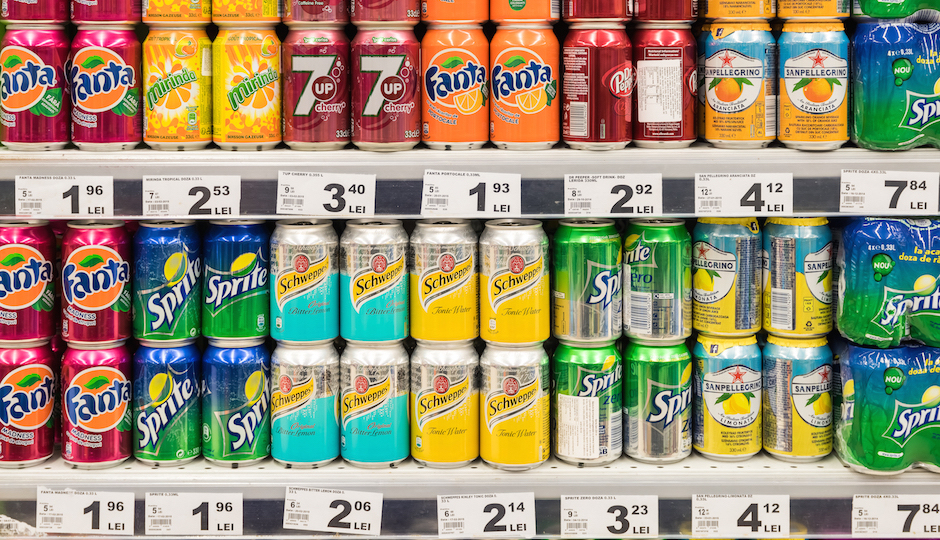How the Beverage Lobby Quietly Killed the Soda Tax in Philly, Again
Much in the same way that the best lawyers kill lawsuits before they ever make it to trial, the best lobbyists kill legislation before it is ever introduced.
In Philadelphia, City Councilman Bobby Henon was seriously eyeing a tax on sugary beverages to help fund the financially crippled school district, according to several City Hall insiders. In fact, sources say Henon went to the trouble of drafting up legislation and putting together a plan to promote it. As a lawmaker who has launched anti-childhood obesity initiatives, it was a natural fit.
But when Council unveiled its education funding package last week, it included a hike in parking tax, a boost in real estate taxes, and an increase use-and-occupancy taxes … but no soda tax.
The beverage lobby has been incredibly effective in beating back a tax on soda, and not just in Philadelphia. While advocates for a soda tax contend it’s a win-win that can raise revenue for cash-strapped municipalities and states while simultaneously fighting obesity, opponents say that it kills jobs, harms small businesses, and is legally dubious in some jurisdictions.
The Washington, D.C.-based American Beverage Association, along with local groups made up of beverage truck drivers and small business owners, have used these arguments to help kill proposed soda taxes in Vermont, New York, Illinois, Kansas, Washington, D.C., and, of course, here.
Mayor Michael Nutter tried and failed twice to convince Council to pass a 2-cents-per-ounce tax on sugary drinks. Michael Masch, who was the district’s chief financial officer when Nutter proposed a soda tax in 2011 to raise $60 million annually for the schools, told the Philadelphia Inquirer that lobbyists bum-rushed City Hall at the time.
He said that for every school district official promoting the tax, “there were two people paid by the beverage industry who were pulling City Council members out into the hallway and into their offices and working on them.”
Since then, the soda lobby has been hyper-vigilant. In early 2012, after Nutter stated publicly that he would not revive the soda tax, the American Beverage Association still spent nearly $240,000 to lobby against the possibility. And soda mogul Harold Honickman has been a major contributor to local elected officials.
Bill Dermody, a vice president at the American Beverage Association, said that the group was aware that a soda tax was being discussed again this spring, and that it advocated against it in conversations with Council members.
“We know that there’s talk about it,” he said. “We’re always trying to make sure that Council knows that it’s going to hurt small businesses, that it’s going to raise grocery bills, and that it’s just a bad idea.”
Councilman W. Wilson Goode, Jr. also confirmed that the soda tax was “definitely discussed,” but said, “I don’t think anyone anticipated that it’s something that we could do for this year.”
When asked to speak about speculation that he was considering a soda tax, Henon said, “I’d rather not speculate about legislation pre-introduction.
“However,” he added, “far too many Philadelphians suffer from preventable, obesity-related diseases. One-third of our children are overweight or obese, putting them at serious risk of developing high blood pressure, diabetes, heart disease or cancer. It’s been proven time and again that sugary drinks such as soda, with no nutritional value, have become ubiquitous in our communities and contributed to this trend. With that in mind, I want to keep an open mind about anything that can help encourage healthier behaviors.”
That sounds like Henon might not be done with the soda tax. And it’s not crazy to think that it could perhaps pass one day in the future. Part of the reason it has flopped so far is because it’s seen as Nutter’s baby, and City Council is very Nutter-averse. But when the mayor finishes his term at the end of the year, that could change.
Plus, Philadelphia recently passed a similarly progressive bill that, like the soda tax, once seemed like it would never fly. It was debated for seven years and it was vetoed twice by Nutter, but paid sick leave became the law of the land this year.
So while beverage lobbyists might have once thought they could leave town when Nutter leaves office, they should probably plan on sticking around for a while.
